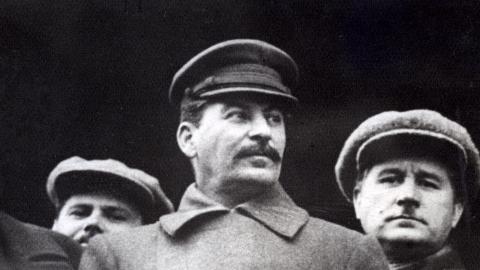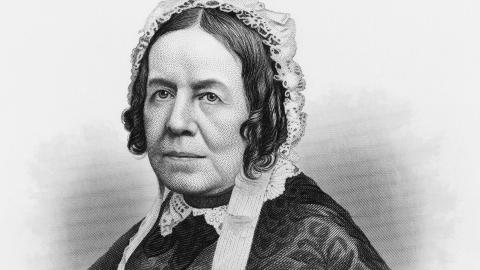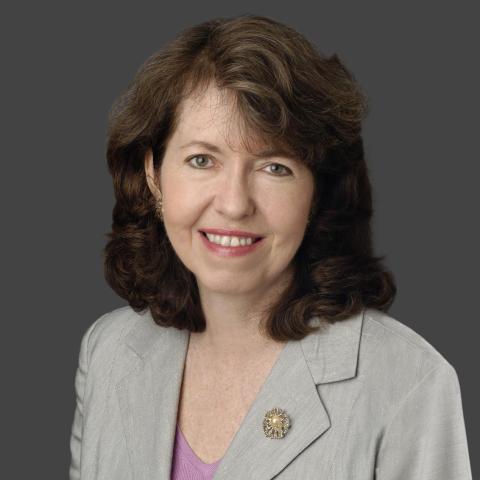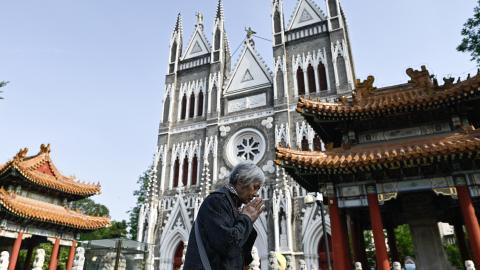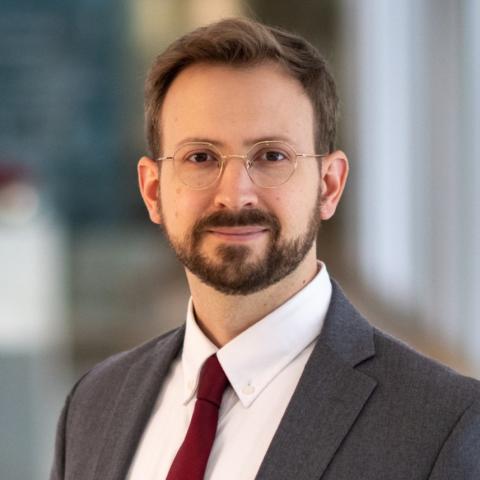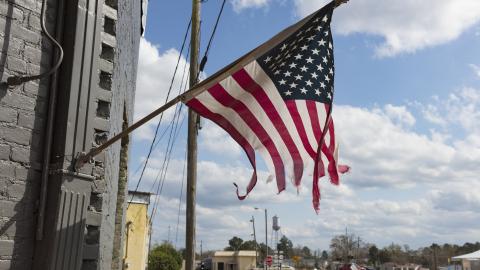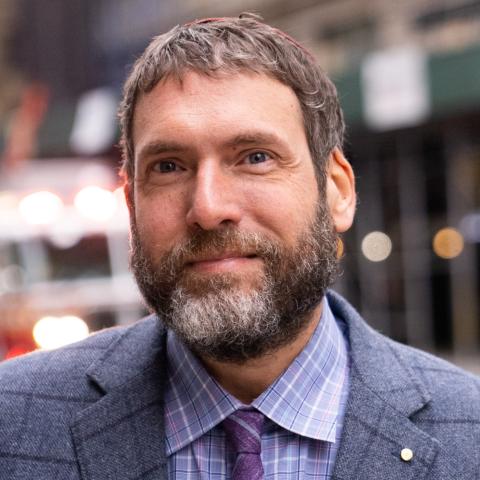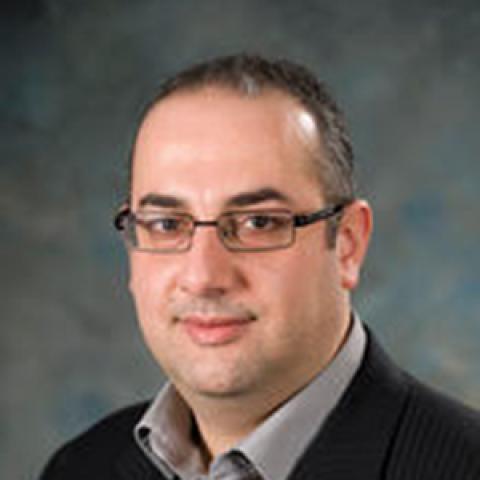This year's Christmas celebration by Egypt's Orthodox Christians on January 7, following the Julian calendar was especially poignant. The Copts came together to reflect on a faith for which they had suffered much over the past year: church burnings, attacks on their persons and property, and, most traumatically, the Maspero massacre, last October, in which 27 Copts were killed by military troops in a barbaric attempt to disperse their protest against religious persecution. Above all, Islamist control of the parliament, recently decided in national elections, left all Copts wondering about their future in their ancient homeland.
Christmas this year was significant for more mundane reasons, as well. In the context of the new, if still evolving, normal of Egyptian politics, Coptic Pope Shenouda's official Christmas Mass became a veritable high-wire act of diplomacy. How the Church and the various political power centers related at that religious event provides an interesting window into the new Egypt.
The Church's dilemma was twofold. First was the question of invitations. Every Christmas, the Church sends invitations to governmental, political, and civil-society figures to attend the main Mass in Cairo's grand Coptic Orthodox cathedral. In the past, it was customary for President Mubarak's son, Gamal, to attend and offer his congratulations to the Pope, though significantly he never attended the Easter Mass. (While Muslims recognize Jesus as a prophet and acknowledge his miraculous birth, they do not recognize his crucifixion or resurrection. By attending the Christmas Mass only, Gamal aimed to win the Copts' support for the regime without offending Muslims).
Whom would the Church invite this year? The answer would be fraught with symbolism that could win over, or alienate, powerful constituencies. A wrong move would not only be a social faux pas, but could have real consequences for the Church. Now that the ruling military council is running the country, it naturally should be on the invitation list, but Egypt's Church and Christians generally hold the military responsible for the Maspero massacre. The idea that military representatives would be sitting in the first pew of the cathedral on one of the Church's most important feast days was, to say the least, controversial.
Then there was the matter of the Islamists. With the Muslim Brotherhood winning 46 percent of the seats in the elections and the Salafists a further 25 percent, they could hardly be shunned. Could the Church afford to ignore the reality that these groups will shape the country's future? It ultimately could not.
The second question involved who should get thanked. It is customary for Pope Shenouda, right before giving his sermon, to express gratitude to those attending. As a demand of protocol, Church authorities might get away with extending an invitation to the military council, but thanking their representatives would be too much for a still-seething Coptic congregation.
The members of the military council had their own dilemma: Should they attend and if so, who should represent them, a minor general or the field marshal himself? To refuse would further enrage the Copts, but to attend risked getting booed or even inviting a new protest. The military council decided that answering their critics required something spectacular and unexpected a real show of force. They decided to send the largest delegation possible, composed of nine council members and headed by the second-highest officer in the council, Chief of Staff Sami Annan.
On receiving their invitations, the Muslim Brotherhood also faced a dilemma. While attending would send a reassuring message to the Copts, and more important gain favorable Western media coverage, it would anger their base. Various sheikhs had issued fatwas in the past prohibiting Muslims from celebrating Christian events and congratulating Christians, for that would have been an acknowledgment of the acceptability of their religion. Mindful that the Salafists are their real competitors both in the ongoing elections and in the future, a wrong signal could alienate their voters and allow the Salafists to challenge them as deviating from Islamic principles for political reasons.
The Brotherhood, being a pragmatic organization, tried to placate both sides. It sent a delegation made up of some of its top leadership to the cathedral at the appointed hour on the day of the Mass, but at the moment the Pope entered, they rose and, breaking custom, promptly congratulated him and then immediately walked out. In their subsequent media statements, they stressed the fact that they left before the worship service began. Their message was straightforward: We went and gave our congratulations, but did not inhale. Commentators highlighted that this followed the fatwa of Sheikh Youssef El Qaradawi.
The Salafists for their part faced no dilemma. Numerous Salafi Sheikhs gave television appearances declaring that it was simply not religiously permissible to congratulate Christians. When a person claiming to be a Salafist and the brother of the Nour party president went ahead and attended the Mass, they were quick to publicly renounce him and assert that he was no relative of the party's president. Later, they were forced to acknowledge that he was indeed the party president's brother, though they declared that he was not representing them, and explained that each family had its black sheep.
Regarding the traditional thanks offered to those attending, the Pope chose to thank the two entities in attendance, the Islamists and the military council. The first went uninterrupted; the second was met with chants of "Down with Military Rule," by a young Christian man sitting in the back of the cathedral who was escorted outside by cathedral security. Many others were also angered by the Pope's words, because he was welcoming and expressing gratitude to men with Christian blood on their hands. The rift between the Church leadership and the younger generation, some of whom have been increasingly radicalized by the revolution, will be an important development to follow.
The matter of seating arrangements inside the cathedral was also tricky. Various public figures attended the Mass, including three presidential candidates: Amr Moussa, Ahmed Shafik, and Hamdeen Sabahy. The order of seating was quite significant, since it indicated where the Church's sympathies lie in the presidential race. Hamdeen Sabahy was granted a seat in the second pew, at the very end of the row.
After complaining and creating a scene, he was moved to the last seat in the first pew. Amr Moussa was seated in the middle of the first pew, on the left side. Although a former foreign-affairs minister, a former Arab League secretary general, and now the leading presidential candidate in all polls, he was seated next to such people as a local council member. The man placed in the front and center pew, occupying the most important seat, was Ahmed Shafik, the last prime minister appointed by Mubarak during the revolution; he was accompanied by his wife. The message was quite clear.
Finally, the Cairo Mass on Christmas revealed something else of a worldly nature: the obvious failing health of His Holiness, the Pope. He barely had the physical strength to walk or stand. He also seemed mentally distracted, repeating twice a passage from his written sermon, which he read. He has since traveled to the U.S. for medical treatment. The Pope's collapsing health raises serious questions about the future of the Church and the struggle among the bishops to succeed him.


